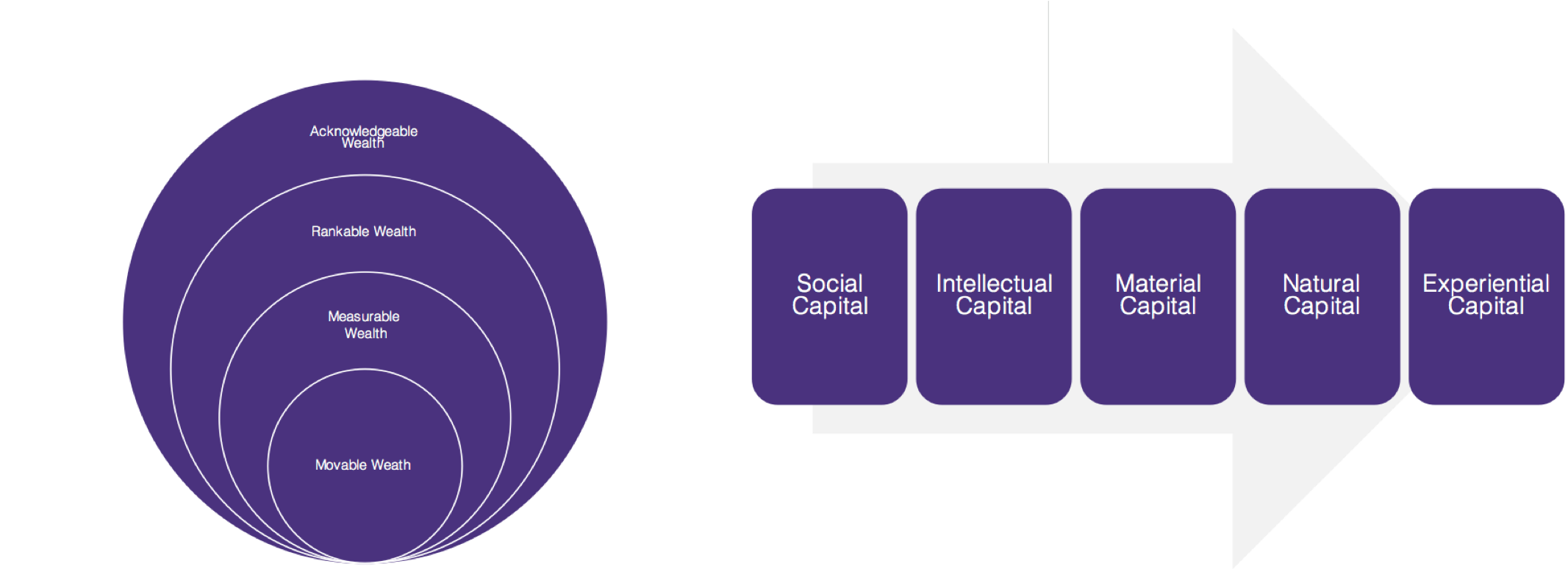Value creation isn’t binary anymore — it’s a spectrum
blockchain·@creativespirit·
0.000 HBDValue creation isn’t binary anymore — it’s a spectrum
It’s interesting how much the post-blockchain world is drawing from social justice conversations. Debates raging in some of these forums have had my mind racing, drawing parallels to how we can shape the conversations around wealth. In the past, all value creation was limited to the economic language of traditional finance. You were either ‘for profit’ or ‘not for profit’. While every organisation existed for a particular mission or vision, it was difficult to translate this into decisions that guided supporters/funders. It’s a conflict you could see arising in almost every conversation surrounding financial capital. As someone who has spent time on either ends of the spectrum i.e. the trading floor and gift economy communities in the Gandhi Ashram, I could see funders struggling to slot who I was, and where I wanted to go with Sacred Capital. The one-dimensional economy language had conditioned us to the extent that you were either ‘the good guy’ and were looking to save the world through philanthropy, or, were profit-seeking. The last decade gave us the concept of social entrepreneurship, which in my opinion were efforts to bridge this divide. But that’s where distributed technologies come in — they now have the potential to bridge that gap, and help us beyond our binary thinking. The true power of the new economy is that we can now give tangible value to what was otherwise deemed subtle to articulate. The beauty of distributed ledger technology is that it is now super cheap to count anything in a reliable, accurate manner. And that allows us to design wealth systems for everything from the quality of the air we breathe, to our reputation within an online eco-system to the bio-diversity of our forests. In the past, we’ve been able to measure these forms of value but they only made tangible impact when they hit the monetary system. What does that mean? It implied everything needed to have a ‘business case’ for validity. Case in point, this study by McKinsey that suggested women should be added to India’s workforce so that GDP can increase by a few digits and not because there is inherent benefit in empowering women to work. Save a community because they will come back to support your business, plant trees for improved profitability and so on. You get the drift. The first few iterations for blockchain technology ran into similar limitations as the monetary system. They could only validate movable wealth, and that means something like the state of our environment, or your reputation on social media can only find tangible value when translated to ‘tradeable money’. But here’s the good news. We’re now starting to see the emergence of ‘post-blockchain’ platforms that go beyond just tokenised wealth. As opposed to ‘data centric’ designs they’re focused on ‘agent-centric’ designs that allow us to create wealth systems that have value without resorting to tokens in every situation. [Types of wealth.png](https://steemitimages.com/DQmeKoPtZ7peTtP5VWBPNnfAQ6932jGAJPzBqCmGSa6iYVv/Types%20of%20wealth.png) For example, the bio-diversity of a forest is a form of wealth and has value in itself, and doesn’t need to be traded. My three hours of labour at an organic farm could earn me three organic credits, which could then make me eligible for a certain set of benefits — like access to produce at a farmers markets, or an invitation to a conference, or one nights stay on anorganic farm in Japan. These are all valid forms of utility for me, which aren’t dependent on the fiat system. This is hard for us to visualise currently, but as network effects play out, we’ll see a whole spectrum of utility being created through these inter-connections. So in the future, an organisation won’t need to state it’s mission and then resort to the for-profit / not-for-profit binaries. They will be able to articulate the value they seek to amplify. Is it social, or cultural, intellectual or material? It’s early days, but this is what new age wealth systems can deliver to us. It’s not just a business, or a non-profit, but an economic space that can be architected as per the value we wish to create. Sounds interesting? Stay tuned — we’ll be releasing a few frameworks that guide us all through this new world!!